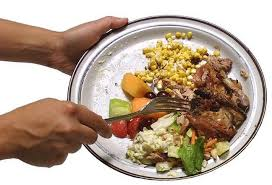Sixteenth Sunday in Ordinary Time
“Master, did you not sow good seed in your field? Where have the weeds come from?” Mt. 13:27
“We have met the enemy, and he is us.”
Many of us are familiar with this oft-quoted statement from Walt Kelly, the creator of the well-loved cartoon character, Pogo. It first appeared on a poster for Earth Day in 1970. Kelly’s underlying explanation was that “we are all responsible for the various pollutions in our life, both public and private.”
I see it also as a great summation of the essence of all three parables in today’s gospel.
They’re about us – you and me. They’re about how many “weeds” are present and growing within us, what “seeds” need to still be planted, and what “yeast” is required for further growth and conversion.
The first of these parables – The Wheat and the Weeds – may be the most often referenced parable quoted in all the New Testament. Unfortunately, it has been used by preachers of all denominations down through the centuries to do at least one of three things: (1) let church-going people identify themselves as the “wheat,” the good guys; (2) give church-going people permission to identify the “weeds” as those “other” people who do not go to our church; (3) assure the people who were listening to their preaching that they will be among the saved, and the “others” will be damned and burned.
In other words, this parable has been repeatedly used to characterize who is right and who is wrong, who is in and who is out, who is worthy and who is not, who is loved by God and who isn’t.
As you well know, none of these interpretations is what Jesus intended in this parable of the wheat and the weeds.
Rather, Jesus wanted to point out at least two things: First, our need to see how lavish God’s love is for all people; Second, our need to stop “playing God” by believing that we’ve been designated to identify all that’s wrong with everyone else.
Pope Francis created a model for us all when he famously said in answer to a question: “Who am I to judge?”
Christ is calling us each to understand that we are all children of God, that God’s love is unconditional, and that God takes the weeds growing inside of each of us – our faults, our imperfections and our flaws – and wants only to grace them with the “seed” of God’s holiness, and with the “yeast” that will create a new kind of heart.
However, according to these parables, this will only happen if we switch our focus, if we re-train our eyes from always looking outward to identify what’s “wrong” with others, and instead start looking inward at our own selves.
What weeds need to be pulled there? What seeds need to be planted there? What yeast needs to be added there?
That’s where our focus needs to be. As long as we’re finding fault with everyone and everything around us, we miss noticing what’s happening in our own hearts and souls. It’s the perfect deflection.
In the addiction recovery model, addicts are often told: “Every time you point a finger at someone else, you’ve got three of your own pointing back at you.”
When you read these parables carefully, you will see that ultimately they are filled with good news. You will see that they contain a gospel message of the love that consoles us when we are lost in the weeds of life, that nurtures us when we are hungry and empty inside, that comforts us when we are saddened by hurts that come our way, and perhaps, most important of all, that accepts and cherishes us in spite of the weeds that continue to grow within us.
The bottom line of these parables today is: Despite the weeds growing in the garden of our own hearts, we are loved and treasured and desired.
How many times as parents or grandparents have you experienced your child excitedly rushing to show you their latest drawing or “art” work?
You know it’s flawed. You know it has blemishes. You know it’s not perfect. But nonetheless you will ooooh and aaaah over it, praise it to the skies, and then attach it lovingly to your refrigerator – all the while beaming and glowing at the beauty and the wonder of this child.
This is how our God approaches each of us!
There is no demand for perfection. There is no insistence on flawless behavior. There is instead only a constant state of “wow,” of joy and astonishment.
And, again like the parent/grandparent with the child, there is also the call to maturity, the expectation of growth, a pointing to greater conversion and a stronger mirroring of being more and more like the God who created and inspired us.
In these parables, God is the “seed” and the “yeast” that together help create a person that, like a loving gardener, will be able to see the weeds growing within and do the pruning and cutting need to create ever greater beauty.
That’s our goal – to be a gardener of our own hearts, a gardener that uses the “seeds” of God’s loving assurances and the “yeast” of God’s all-forgiving promises to create within ourselves as lush and lavish a human person as we possibly can.
“We have met the savior, and he is ours.”
Ted Wolgamot, Psy.D.
11809194.1
7/21/2017




